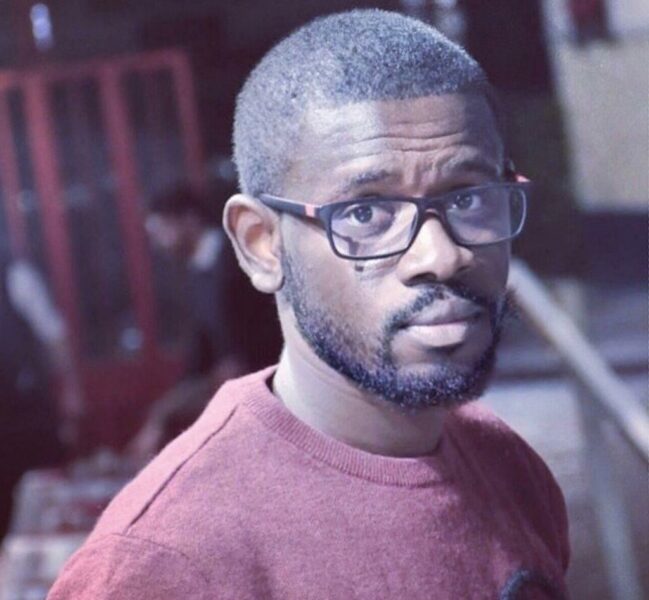
Photo provided by El Hadji Ibrahima DIAGO and used with permission.
As part of our ongoing series highlighting the work of activists promoting African languages in digital spaces, we would like to feature El Hadji Ibrahima DIAGO (@elibdiago [1]) from Senegal.
He is a Wolof [2]-speaker, a language used by approximately 10 million speakers as their first or second language in Senegal and other parts of West Africa. His work can be heard in the Wolof Tech [3] podcast highlighting tech-related initiatives.
Rising Voices (RV): Please tell us about yourself.
El Hadji Ibrahima DIAGO (EHID): I am a computer engineer and podcaster for several years. I am Senegalese and a passionate of new technologies and that since my childhood. I created two years ago, a podcast called Wolof Tech which is a program that talks about new technologies in Wolof, a local language in Senegal spoken by over 90% of the population.
The podcast is organized in several seasons, each of which includes about ten episodes where we invite experts, entrepreneurs, professors, and students to discuss topics in new technologies.
RV: What is the current state of your language both online and offline?
EHID: Today, in the field of new technologies, the Wolof language is not very well represented. Most of the course materials are in French and English, which excludes a very large part of the population, i.e., the unschooled who represent 53% of the population.
What are your motivations for seeing your language present in digital spaces?
EHID: We believe that language is just a tool to access knowledge which is itself universal, it has no color or belonging. We can and must be able to use our mother tongue to access all kinds of knowledge. And this requires an enormous work to make the translation of the contents and the adaptation of some examples for a better understanding of the concepts.
We think that if we can make our populations understand the impact and the interest of these new technologies in their lives, they will be able to have new reflections to improve their life, their work etc…
A collaboration between the experts of the field and the populations in the need of change and evolution will be the beginning of a new era which will lead us towards the true development where all the parts will be implied with a great improvement of the levels of understanding.
RV: Describe some of the challenges that prevent your language from being fully utilized online.
EHID: The Wolof language is not taught at school in Senegal. It is not included in the school curriculum and this is the reason why our people cannot even write words correctly. Thus we notice a certain anarchy in the spelling of words especially in social networks.
RV: What concrete steps do you think can be taken to encourage younger people to begin learning their language or keep using their language?
EHID: The first step is to add Wolof to the list of languages to be learned in school programs up to university level.
It will also be necessary to promote the language through initiatives such as the podcast that we are doing and that is directly aimed at these populations.Today, as a French speaker in our companies, meetings with the participation of an English speaker turn directly to the use of English as a language of communication. So why not speak wolof between us for a better understanding especially since we have noticed that in some companies employees are often afraid to express the substance of their thoughts because they do not want to make mistakes.
So let's have the courage to value our languages by using them daily and correctly before they disappear. We owe it to the future generation.